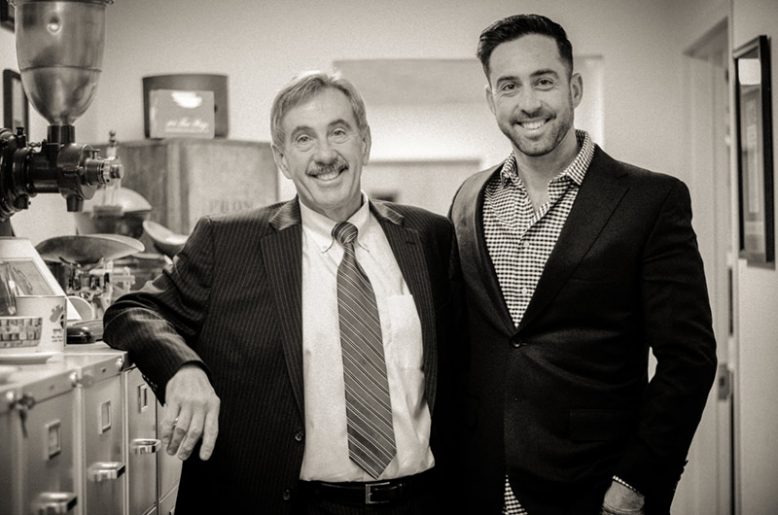
When Walter Law, a Wall Street tea broker, got interested in coffee in about 1902, he roasted some Brazilian and Colombian beans in the barn of his Dunellen home and took them house-to-house in a horse-drawn wagon.
To entice customers, he carried a pill crusher, put a few beans in it, crunched and held it under the prospective buyer’s nose. He sold enough coffee that in 1909 he launched the Law Coffee Company in 1909. He would be amazed what his descendants have done from those modest beginnings.
Today Law is the oldest family-founded and family-run coffee company in the state. Law operates from a 30,000-square-foot facility in Newark. It distributes its coffee to several thousand businesses throughout the Mid-Atlantic States and parts of New England.
This century-plus legacy might have ended in the 1940s, when Walter’s three sons, Warren, Stanley and Robert Law, all stopped working in their dad’s roastery and enlisted to fight in World War II. Robert and Stanley were killed in action. Warren, the middle child, was honorably discharged from the service and allowed to come home to keep the business going. (This type of exemption would be formally adopted by the Department of Defense in 1948.)
Warren Law expanded the business his father started, eventually bringing in his son-in-law, David M. Mendez, who in turn brought in his son, David W. Mendez, in 2004. The younger Mendez, now 33, had earned a marketing degree from the University of Delaware. He now serves as Vice President of Sales.
“At its truest point, coffee is a commodity,” says Mendez, “but it is understanding how the whole seed-to-cup process works and knowing how to manipulate it that will produce the best coffee possible.”
He follows the Coffee Association of America’s 24-point guide to selecting, roasting and blending beans and brewing excellent coffee from them.
Just in terms of the last step, brewing, the CAA checklist covers grinding (particle size and shape); temperature of the water when it first hits the grounds (200 degrees F is ideal); temperature through the cycle (should be 195-200 degrees); duration of contact between hot water and grounds (70 percent of extraction takes places in the first third of the brewing cycle); not to mention flow rate, particle movement, method of filtering, material used to filter, and a lot more.
“Even if you’ve got a great coffee,” Mendez says, “everything can still get messed up, and can ultimately make a bad cup of coffee.”
Law has recently built a state-of-the-art training facility for restaurateurs and baristas.
Though the company mostly sells wholesale, individuals can buy Law coffee online. The company plans to be in supermarkets next year in K-Cups. These won’t produce any connoisseur’s idea of the fullest, richest cup of coffee, but they’re convenient, and the demand is there; so why shouldn’t Law get in on the action? Law also hopes to open the teaching café to home connoisseurs.
Mendez, who has traveled to Kenya, Brazil, Columbia, Guatemala, Ethiopia, Sumatra and other places in the world’s Coffee Belt, recently visited Cuba in hopes of being able to bring Cuban beans to the U.S.
Mendez is not Cuban, but he says he speaks high-school Spanish, and surely that didn’t hurt his effort. But who knew Cuba produces a significant coffee crop? Turns out the Sierra Maestra Mountains in Southeast Cuba reach altitudes over 6,000 feet, and that, combined with a tropical or subtropical climate, is what coffee plants like.
“The specialty coffee business has evolved so much,” says Mendez. “People are looking for those new exceptional coffees and they are willing to pay a premium for them. People are willing to go to a bar and spend $7 for a standard beer, why wouldn’t they be willing to pay $7 for one of the best cups of coffee they’ve ever had in their life?”
Law Coffee
280 Wilson Avenue
Newark
800-675-0627




